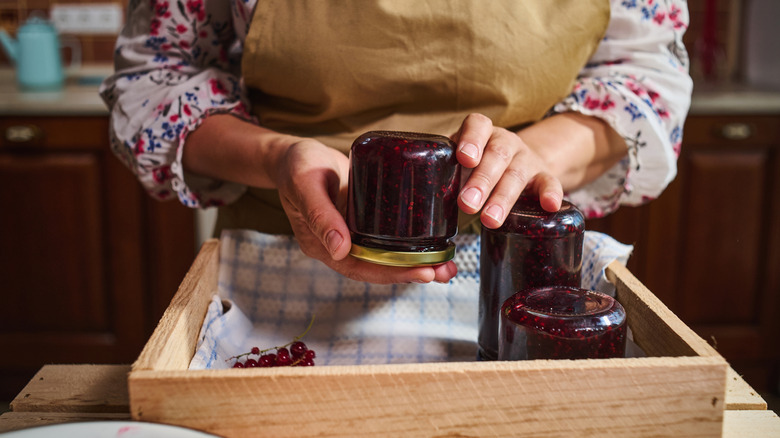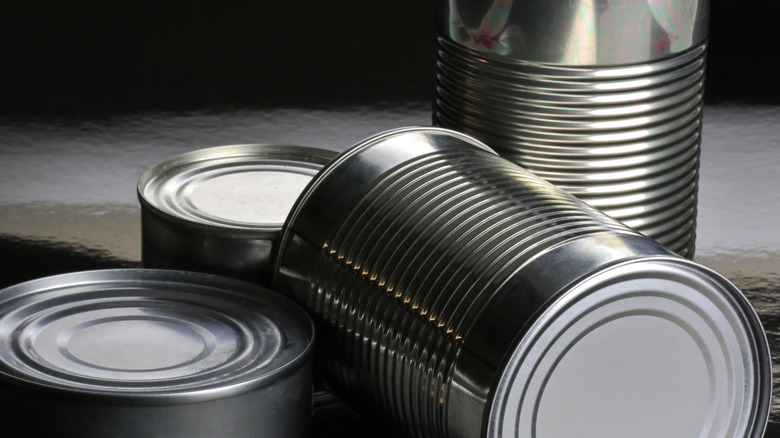Should You Store Canned Goods Upside Down?
We may receive a commission on purchases made from links.
Canned goods are second to none for their convenience and longevity, often providing similar or equal nutritional values to fresh or frozen produce with minimal cooking time. Oh, and they're inexpensive and highly versatile, to boot. The internet is chock full of storage ideas for just about everything, and canned food is no exception, with the latest suggestion being that you can store your cans upside down. But what does that actually do, and should you?
Storing your canned goods upside down, so the theory goes, prevents the contents of the cans from settling at the bottom. That means when you open the can and pour out its contents, less gets stuck, and you don't have to go in with a spatula or spoon. It can also help keep the tops of your cans dust-free, so if you open one without giving it a wipe-down (which you should do anyway to prevent contamination), no dirt or debris will end up inside with your food.
But does it actually work? That depends on the food inside the can. For example, with canned chickpeas or garbanzo beans, it doesn't make much of a difference; the aquafaba they're stored in tends to cling to the can regardless of orientation. However, with something less viscous, like a pasta e fagioli or minestrone soup, it could definitely be worth a try.
The best storage practices for canned goods
If you decide to store your canned goods upside down, there are a few other storage tips to keep your cans safe and sound — and these tips also apply if you store them right side up. First, store cans in a cool, dry place — like a pantry away from heat-producing kitchen appliances such as refrigerators, stoves, or ovens, as well as vents. When possible, use wire shelving (like this shelving kit from ClosetMaid) to promote good airflow around your non-perishables.
It's also important, when you restock after a grocery trip, to rotate newer cans to the back and move older ones to the front. This is called the FIFO method (first in, first out). That way, you're using up the items that have been in storage the longest instead of forgetting about them for years and finding the can bulging or leaking — a sure sign it must be thrown out.


